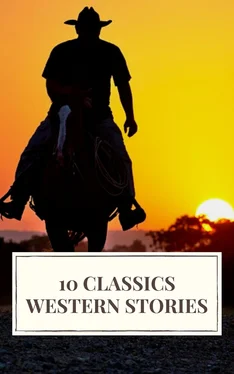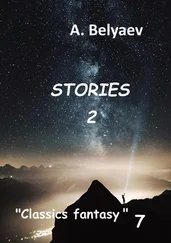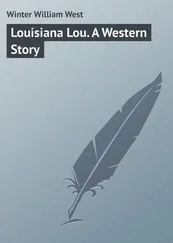Perhaps ten of the petty inland tribes had assembled there as their starting-point for the great council at Wappatto Island. All had heard rumors of the white man who had appeared among the tribes to the south saying that the Great Spirit had sent him to warn the Indians to become better, and all were anxious to see him. They pointed him out to one another as he rode up,—the man of graceful presence and delicate build; they thronged around him, naked men and half-clad women, squalid, fierce as wild beasts, and gazed wonderingly.
“It is he, the white man,” they whispered among themselves. “See the long beard.” “See the white hands.” “Stand back, the Great Spirit sent him; he is strong tomanowos ; beware his anger.”
Now the horses were unpacked and the lodges pitched, under the eyes of the larger part of the encampment, who watched everything with insatiable curiosity, and stole all that they could lay their hands on. Especially did they hang on every motion of Cecil; and he sank very much in their estimation when they found that he helped his servant, the old Indian woman, put up his lodge.
“Ugh, he does squaw’s work,” was the ungracious comment. After awhile, when the lodge was up and Cecil lay weary and exhausted upon his mat within it, a messenger entered and told him that the Indians were all collected near the river bank and wished him to come and give them the “talk” he had brought from the Great Spirit.
Worn as he was, Cecil arose and went. It was in the interval between sunset and dark. The sun still shone on the cliffs above the great canyon, but in the spaces below the shadows were deepening. On the flat rocks near the bank of the river, and close by the falls of Tumwater, the Indians were gathered to the number of several hundred, awaiting him,—some squatting, Indian fashion, on the ground, others standing upright, looking taller than human in the dusky light. Mingled with the debased tribes that made up the larger part of the gathering, Cecil saw here and there warriors of a bolder and superior race,—Yakimas and Klickitats, clad in skins or wrapped in blankets woven of the wool of the mountain sheep.
Cecil stood before them and spoke, using the Willamette tongue, the language of common intercourse between the tribes, all of whom had different dialects. The audience listened in silence while he told them of the goodness and compassion of the Great Spirit; how it grieved him to see his children at war among themselves, and how he, Cecil, had been sent to warn them to forsake their sins and live better lives. Long familiarity with the Indians had imparted to him somewhat of their manner of thinking and speaking; his language had become picturesque with Indian imagery, and his style of oratory had acquired a tinge of Indian gravity. But the intense and vivid spirituality that had ever been the charm of his eloquence was in it still. There was something in his words that for the moment, and unconsciously to them, lifted his hearers to a higher plane. When he closed there was upon them that vague remorse, that dim desire to be better, that indefinable wistfulness, which his earnest, tender words never failed to arouse in his hearers.
When he lifted his hands at the close of his “talk,” and prayed that the Great Spirit might pity them, that he might take away from them the black and wicked heart of war and hate and give them the new heart of peace and love, the silence was almost breathless, broken only by the unceasing roar of the falls and the solemn pleading of the missionary’s voice.
He left them and returned through the deepening shadows to his lodge. There he flung himself on the couch of furs the old Indian woman had spread for him. Fatigued with the long ride of the day and the heavy draught his address had made on an overtaxed frame, he tried to sleep.
But he could not. The buildings of the town of Wishram across the river, so like the buildings of the white man, had awakened a thousand memories of home. Vivid pictures of his life in New England and in the cloisters of Magdalen came before his sleepless eyes. The longing for the refined and pleasant things that had filled his life rose strong and irrepressible within him. Such thoughts were never entirely absent from his mind, but at times they seemed to dominate him completely, driving him into a perfect fever of unrest and discontent. After tossing for hours on his couch, he arose and went out into the open air.
The stars were bright; the moon flooded the wide canyon with lustre; the towering walls rose dim and shadowy on either side of the river whose waters gleamed white in the moonlight; the solemn roar of the falls filled the silence of the night.
Around him was the barbarian encampment, with here and there a fire burning and a group of warriors talking beside it. He walked forth among the lodges. Some were silent, save for the heavy breathing of the sleepers; others were lighted up within, and he could hear the murmur of voices.
At one place he found around a large fire a crowd who were feasting, late as was the hour, and boasting of their exploits. He stood in the shadow a moment and listened. One of them concluded his tale by springing to his feet, advancing a few paces from the circle of firelight, and making a fierce speech to invisible foes. Looking toward the land of the Shoshones, he denounced them with the utmost fury, dared them to face him, scorned them because they did not appear, and ended by shaking his tomahawk in their direction, amid the applause of his comrades.
Cecil passed on and reached the outer limit of the camp. There, amid some large bowlders, he almost stumbled on a band of Indians engaged in some grisly ceremony. He saw them, however, in time to escape observation and screen himself behind one of the rocks.
One of the Indians held a rattlesnake pinned to the ground with a forked stick. Another held out a piece of liver to the snake and was provoking him to bite it. Again and again the snake, quivering with fury and rattling savagely, plunged his fangs into the liver. Several Indians stood looking on, with arrows in their hands. At length, when the meat was thoroughly impregnated with the virus, the snake was released and allowed to crawl away. Then they all dipped the points of their arrows in the poisoned liver, [7]carefully marking the shaft of each in order to distinguish it from those not poisoned. None of them saw Cecil, and he left without being discovered.
Why did they wish to go to the council with poisoned arrows?
Further on, among the rocks and remote from the camp, he saw a great light and heard a loud hallooing. He went cautiously toward it. He found a large fire in an open space, and perhaps thirty savages, stripped and painted, dancing around it, brandishing their weapons and chanting a kind of war-chant. On every face, as the firelight fell on it, was mad ferocity and lust of war. Near them lay the freshly killed body of a horse whose blood they had been drinking. Drunk with frenzy, drunk with blood, they danced and whirled in that wild saturnalia till Cecil grew dizzy with the sight. [8]
He made his way back to the camp and sought his lodge. He heard the wolves howling on the hills, and a dark presentiment of evil crept over him.
“It is not to council that these men are going, but to war,” he murmured, as he threw himself on his couch. “God help me to be faithful, whatever comes! God help me to keep my life and my words filled with his spirit, so that these savage men may be drawn to him and made better, and my mission be fulfilled! I can never hope to see the face of white man again, but I can live and die faithful to the last.”
So thinking, a sweet and restful peace came to him, and he fell asleep. And even while he thought how impossible it was for him ever to reach the land of the white man again, an English exploring-ship lay at anchor at Yaquina Bay, only two days’ ride distant; and on it were some who had known and loved him in times gone by, but who had long since thought him lost in the wilderness forever.
Читать дальше












